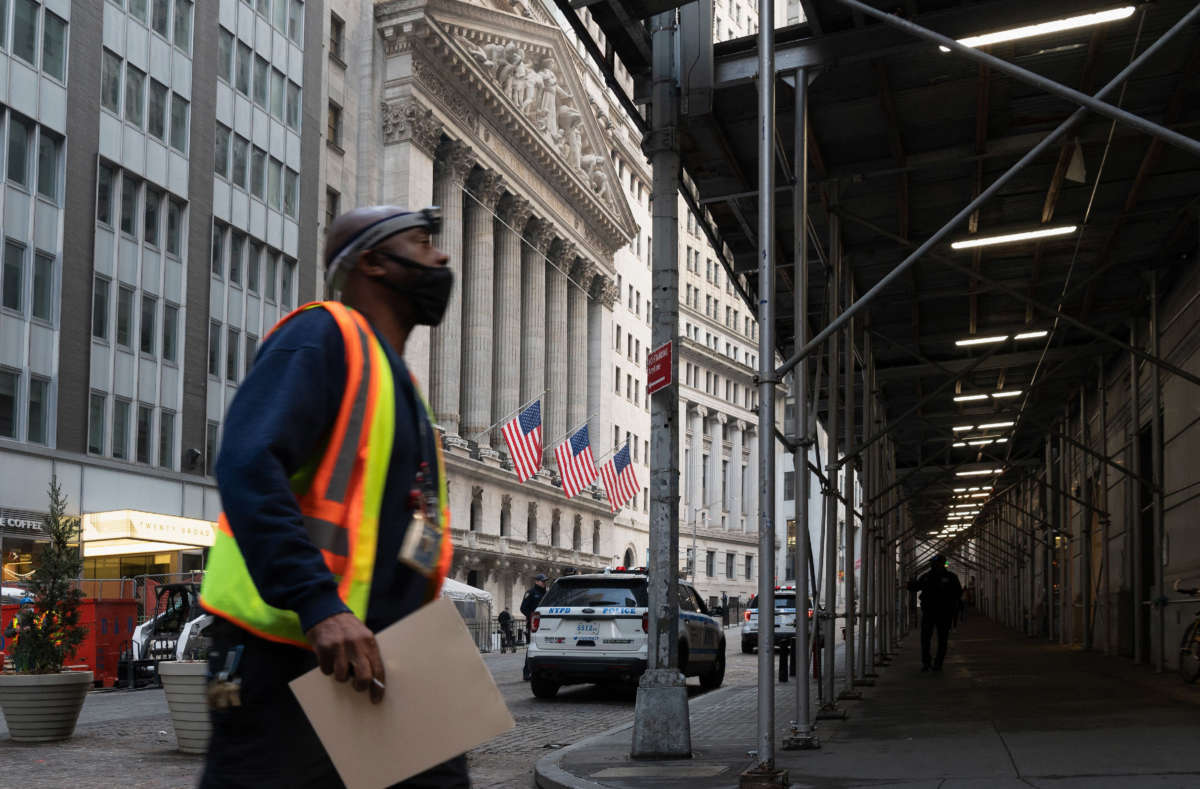The vast majority of voters across the U.S. back raising corporate taxes in order to fund an infrastructure bill, according to the findings of a new Morning Consult poll published on Wednesday.
When asked whether taxes on corporations should go up to pay for an infrastructure plan being pushed by President Joe Biden and Democrats in Congress, 65 percent of registered voters in the poll said they backed the idea. Meanwhile, just barely one in five voters in the poll, 21 percent, disagreed.
Democrats and independents are largely in agreement, according to the poll’s findings, that corporate tax rates should be increased to fund these projects, which include investments in green energy, improvements to rail and highway systems, and new housing projects for Americans of modest means. Republicans, however, were split on the idea, with 42 percent in favor of raising the corporate tax rate versus 47 percent who said they opposed doing so to pay for the infrastructure bill.
Infrastructure is an important issue for most Americans. Only 21 percent of voters, according to the poll, say it shouldn’t be a priority or that a bill on U.S. infrastructure shouldn’t be considered at all. Conversely, 32 percent of Americans described it as a “top” priority, while 34 percent said it was an “important” one.
Biden spoke about the need for an infrastructure bill on Wednesday afternoon, touting it as necessary to fix the country’s infrastructure problems while also describing it as beneficial for creating new jobs.
He called the plan a “once in a generation investment in America.”
“Infrastructure is about meeting the needs of the nation, and putting Americans to work,” he added.
The president also reiterated a promise he made on the campaign trail last year, that no U.S. resident earning less than $400,000 per year would see their taxes go up in order to pay for the bill.
Instead, Biden explained, he’d push for raising taxes on corporations. To sell the idea, he explained the history of those taxes, emphasizing that his approach was really a compromise between the extreme tax cuts that former President Donald Trump made and what rates had been during previous administrations.
“It was 35 percent for the longest time, which was too high,” Biden said, referencing how he and former President Barack Obama felt about the rate while Biden served as vice president. “But the previous administration reduced it all the way down to 21 percent. What I’m proposing is that we meet in the middle, 28 percent.”
Biden also said his administration would push for closing corporate loopholes. Doing so, combined with imposing new tax rates, would be the primary revenue source to pay for the infrastructure bill he was proposing.
“It’s honest, it’s fair, it’s fiscally responsible, and it pays for what we need,” Biden said.
Given how popular the effort to change and upgrade the U.S. infrastructure is with Americans, some Democrats have openly stated that they want to see Biden do more, particularly when it comes to projects focusing on green energy and climate change.
Vermont independent Senator Bernie Sanders is one such critic of the current infrastructure plan. While generally supportive of the plan the president has proposed, Sanders has called for Biden to do more with climate-based ideas.
“The truth is, as everybody knows, the scientists tell us we have a handful of years in front of us in order to transform our energy system away from fossil fuel, or we’re going to face awful crises in terms of irreparable damage to our planet,” Sanders recently said. “And when we do that, we can create millions of good-paying jobs.”
Media that fights fascism
Truthout is funded almost entirely by readers — that’s why we can speak truth to power and cut against the mainstream narrative. But independent journalists at Truthout face mounting political repression under Trump.
We rely on your support to survive McCarthyist censorship. Please make a tax-deductible one-time or monthly donation.
